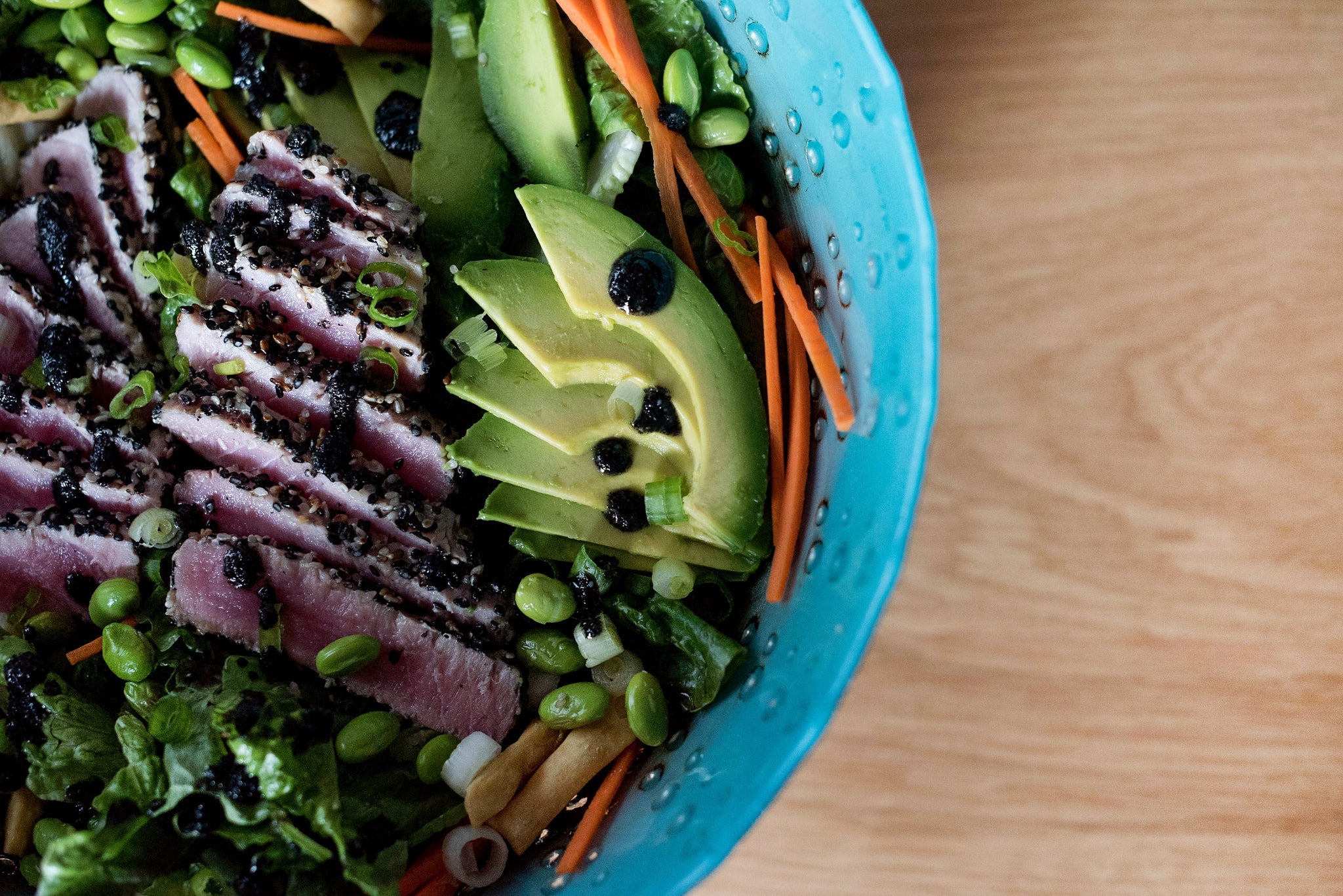Is The Ketogenic Diet Wrong For Power Athletes?

Many people, including athletes, are thriving on the ketogenic diet.
It seems like every week, we hear a new story of someone using the ketogenic diet to expand the boundaries of human potential - stories like this guy who just climbed Mt. Everest without oxygen thanks to the ketogenic diet.
These stories are inspiring, and this progress is great for all athletes and performance enthusiasts, but we need to ask one very important question - is the ketogenic diet ideal for all athletes?
New research (and personal experience) says it may not be.
Listen to the whole episode here:

Is the Ketogenic Diet the best diet for everyone?
New to keto? Read this. Or this.
And make sure you listen to THIS podcast with Keto expert Dominic D'Agostino.
Few things are one-size fits all. Especially "diets".
In this post (and podcast) I'll identify a few of the downsides to the ketogenic diet and outline my "hacks" for creating the optimal diet that incorporates the benefits of the KD while avoiding the downsides.
But first, let's look at this recently published research.
6-Week Ketogenic Diet Decreases Physical Performance
A recent study, published in February 2017 had 42 adults (age 37 + 12 ) follow a ketogenic diet for 6-weeks with zero calorie restrictions.
Using urine ketosis testing, 97% of test came back positive for ketogenic states, showing a high level of compliance amongst subjects.
The prescribed diet was:
- 71.6% Fat
- 20.9% Protein
- 7.7% Carbs
Researchers tested both physical performance and blood biomarkers.
Results on Performance:
- VO2 Max DECREASED 2.4%
- Peak Power DECREASED 4.1%
- Grip Strength INCREASED 2.5%
Study Results on Biomarkers:
- 3% reduction in blood glucose
- 20% reduction in insulin
- 22% reduction in IGF-1
The decreased blood glucose and insulin is great, but that is to be expected as carbs were only 7.7% of total caloric intake. As we discuss on the podcast, this is a huge positive for those with metabolic dysfunction or those looking to avoid it.
But first, let's look closely at the IGF-1 reduction.
What is IGF-1?
IGF-1 is the active form of Human Growth Hormone (HGH) and it may have anti-aging implications. IGF-1 is associated with increased telomere length, it decreases inflammation, and it enhances antioxidant activity - especially glutathione (which Stephen Fowkes explained as a crucial component to protecting against neurodegenerative disorders).
If the KD decreases significantly (22% is significant) it may be a considerable counter-point to the anti-aging benefits of ketosis...not a deal-breaker, just something to guard against.
So let's talk about the researcher's conclusion...
“We detected a mildly negative impact from this 6-week non-energy-restricted KD on physical performance (endurance capacity, peak power and faster exhaustion). Our findings lead us to assume that a KD does not impact physical fitness in a clinically relevant manner that would impair activities of daily living and aerobic training. However, a KD may be a matter of concern in competitive athletes.”
I second this statement. Based on my personal experience on the ketogenic and the results of training hundreds of athletes, I caution against the use of a strict ketogenic diet for power athletes.
Top 3 Problems With Ketogenic Diets
- Decrease in power output. Again this is based on my personal experience + a cross-section of hundreds of athletes coached + research demonstrating reductions in peak power output.
- Decrease in IGF-1: As noted in this new study, the KD 22% drop off in 6-weeks. This active form of growth hormone has been inked to telomere length and glutathione levels - both strongly linked to longevity. This is one study and we need to verify it, but this is something to be aware of.
- Many ketogenic dieters use the KD as an excuse to eat low quality foods that fit the macronutrient profile of simply being "high fat".
How to hack the Ketogenic Diet:
- Food quality ALWAYS matters most. Regardless of the "diet" you follow, the quality of the food and how it impacts our cells, hormones, mitochondria, hormones, and genes will determine how optimal we're able to live and perform.
- For power athletes - those performing at high high intensities with a high frequency, a carb cycling, or cyclical ketogenic approach allows us the best of both worlds. We get the cognitive, neurological, and anti-aging benefits of a low carbohydrate diet with the strength, telomere and glutathione-benefitting advantages of optimizing our hormones through the minimal effective dose of carbohydrate intake.
- Keep lifting heavy - guard against strength loss. Form follows function. I'm, not entirely sure how the researchers in this study had the subjects training, but it's always good to remember that if you want to maintain (or build) strength, you must give your body a reason to do so - and that means lifting heavy.
For more insights on the results and how to hack the ketogenic for optimal performance, listen to the whole episode here:
Watch the video here:
Previous episodes of the OPP you should check out:
- Steven Fowkes on glutathione and prevention of neurological dysfunction
- Dr Bill Andrews on telomeres and aging
- The Ketone Episode with Dominic D'Agostino and Dr. Mike T. Nelson
Studies
- Ketogenic Diet Reduces VO2 Max and Peak Power Output
- Grip Strength predictor of mortality
- Higher levels of IGF-1 associated with increased telomere length
- IGF-1 and Glutathione
I forgot a few things in the recording that I want to highlight here:
- A second higher carb option = have berries or other produce daily.
- Being Fat adapted does not mean you have to be in ketosis 24/7










